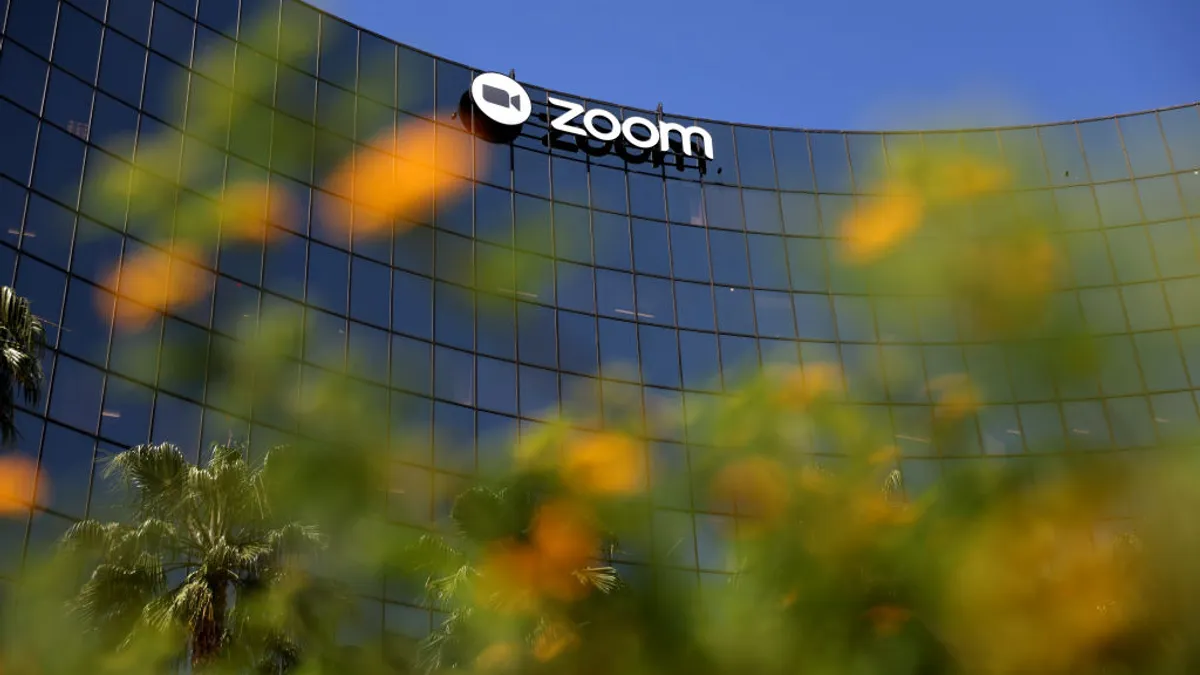Dive Brief:
- Zoom announced the general availability of Tasks, the latest push toward embedded agentic AI, the company said Monday. The capability works with the company's AI Companion to suggest and complete tasks on users' behalf.
- The feature, previewed during the company's user conference last October, offers users a way to manage tasks across Zoom Workplace, including Zoom Team Chat and email. Zoom Tasks with AI Companion is included with eligible paid Zoom Workplace plans, the company said.
- Zoom Tasks can suggest actions such as scheduling meetings or drafting messages, helping employees complete tasks under human review and approval, the company said.
Dive Insight:
Zoom spent much of last year firing up a battery of AI-enabled offerings amid a push to reintroduce itself to the enterprise.
The company dropped "Video" from its name in November, opting for the more generic moniker of Zoom Communications. The change, according to founder and CEO Eric Yuan, reflected a broader shift toward an AI-first approach to workplace tools. In October, the company introduced AI Companion 2.0, aiming the platform at optimizing the work day for users.
"Growth in monthly active users of Zoom AI Companion accelerated to 68% quarter over quarter, demonstrating the real value AI is providing customers," Yuan said during a Q4 2025 earnings call in February. "Zoom AI Companion has emerged as a driving force behind our transformation into an AI-first company, enabling our customers to discover enhanced productivity opportunities."
Zoom’s agentic play reflects a broader vendor trend. Software providers of all kinds have put forth agentic AI products to capture enterprise interest — and spending.
Google began providing early access to its Agentspace platform in December, a hub that enables enterprise customers to create and manage AI agents. In January, ServiceNow announced its AI Agent Orchestrator to ease information sharing and coordination between enterprise agents. Nvidia, OpenAI and Snowflake have also released agentic AI products this year.
As AI products proliferate, CIOs are scrutinizing costs.
Generative AI spending is set to jump 76% this year to nearly $650 billion, according to Gartner data published last month. Overall IT spending will grow nearly 10% this year, with generative AI hardware spending among the key growth drivers.
The spending spree has turned CIOs attention to potential return on investment, although concerns about data quality and security are also top of mind.












